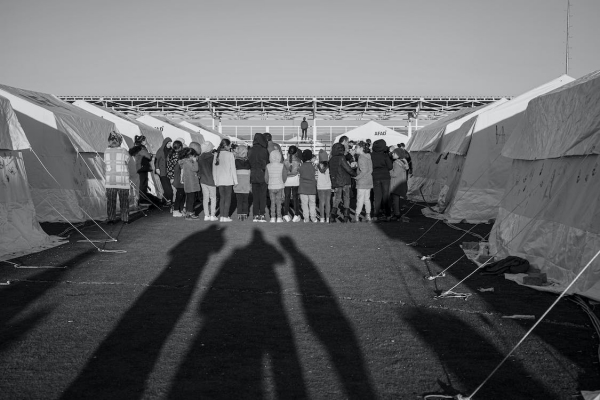Due to the armed blockade of several areas of Sudanese territory, humanitarian workers have been unable to reach families trapped by the conflict and in urgent need of food assistance. However, recently WFP workers were finally able to access areas of Khartoum controlled by both the Sudanese Armed Forces (SAF) and the Rapid Support Forces (RSF), being able to provide assistance to about 15,000 people. Moreover, other recent food distributions also took place in Wadi Halfa and Port Sudan, where about 12,000 displaced people or people fleeing to Egypt are located.
A further challenge is currently represented by the approaching summer season, also called the "hunger season", which coupled with the conflict is likely to increase the likelihood of food insecurity that would affect 2.5 million more people. Already as of today, 13.6 million children are in need of urgent care and access to life-saving services, but the consequences of the predicted famine, the perpetuation of the conflict, and, in addition, continued attacks on health care, reduce the likelihood of survival even further.
Incidentally, in addition to the difficulties already experienced by aid workers in accessing the territory, another issue is the frequent looting of goods and vehicles. This is an unfortunate situation not only because of the reduction of assistance supplies to the population but also from an economic point of view; in fact, both WFP and UNICEF need funds, $730 million and $838 million respectively, to be able to provide the necessary assistance. So far, UNICEF has received only 5 percent of the amount, having difficulty in procuring therapeutic food and vaccines necessary for the survival of millions of children.
The situation in the country is at a critical point, with the parties to the conflict refusing to cooperate with international actors, or cooperating less than they should, to ensure compliance with international humanitarian law and the protection of civilians, especially the most vulnerable. By now we are talking about "large-scale loss of life and property," says Filippo Grandi, the UN High Commissioner for Refugees. There is a need to mobilize more resources to address the crisis and prevent the reality in Sudan from becoming a death sentence.
To read more, please visit:
https://news.un.org/en/story/2023/05/1137137
https://news.un.org/en/story/2023/05/1137052
https://news.un.org/en/story/2023/05/1136977
by Chiara Cacciatore







